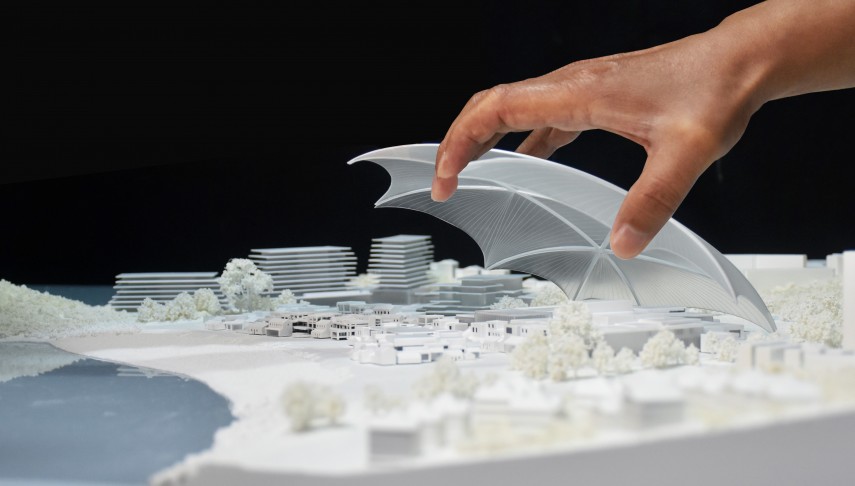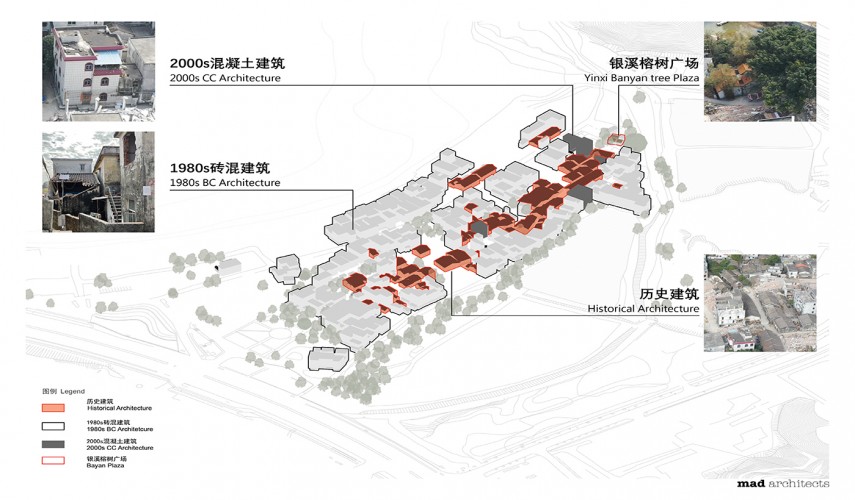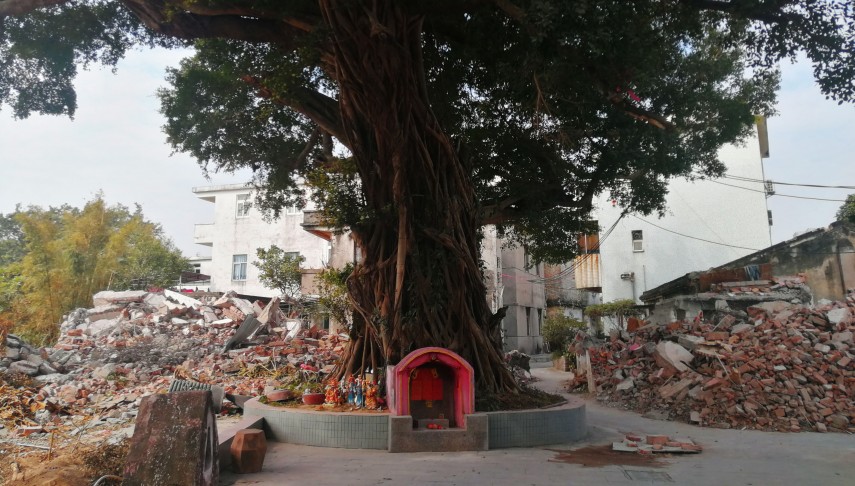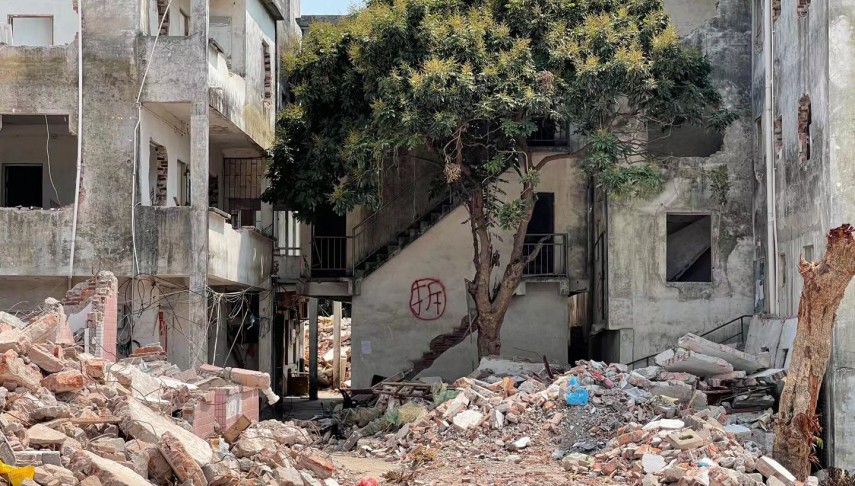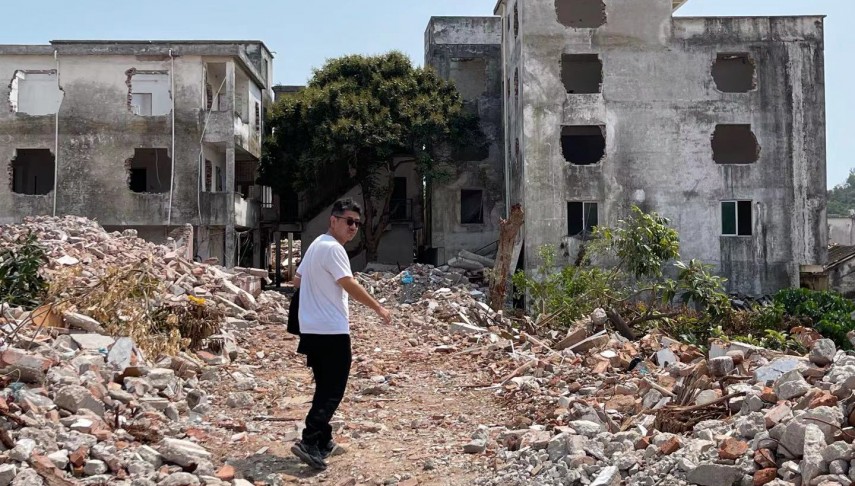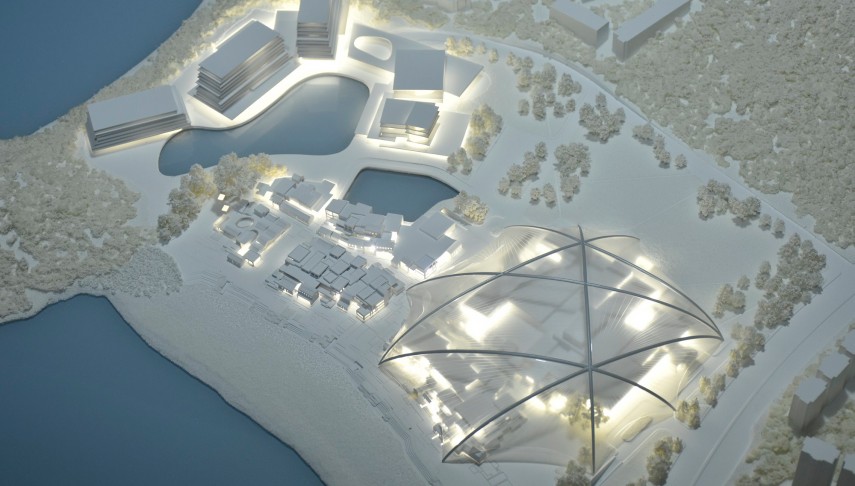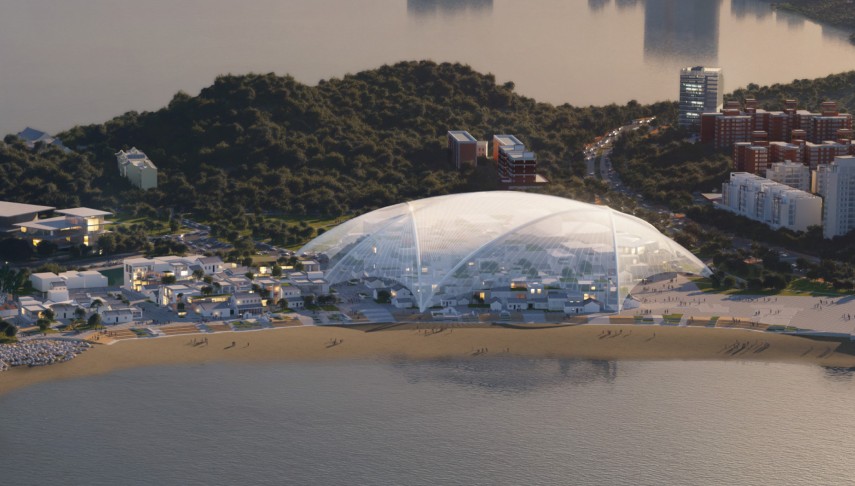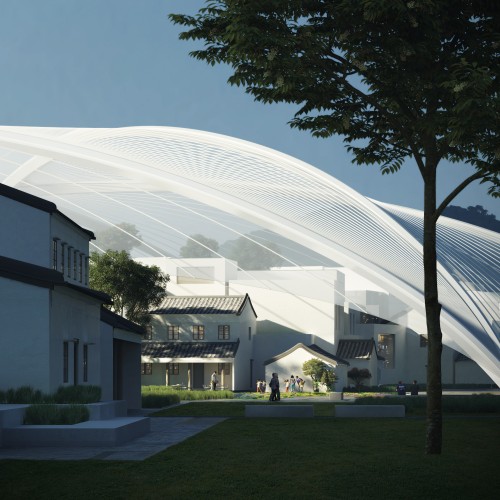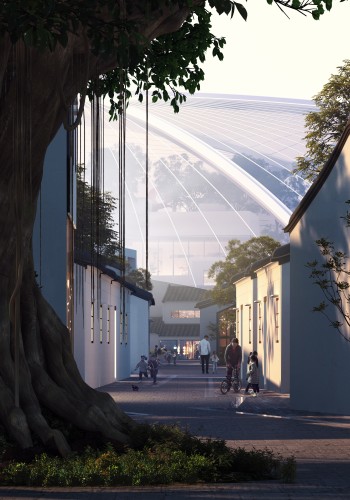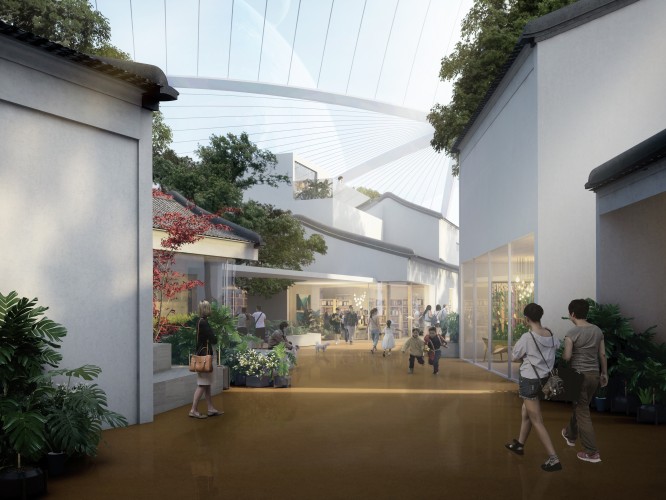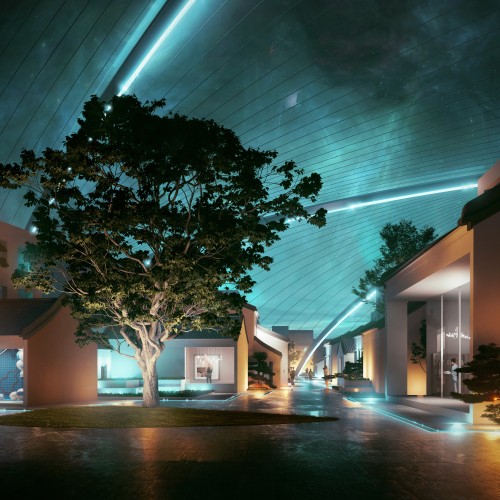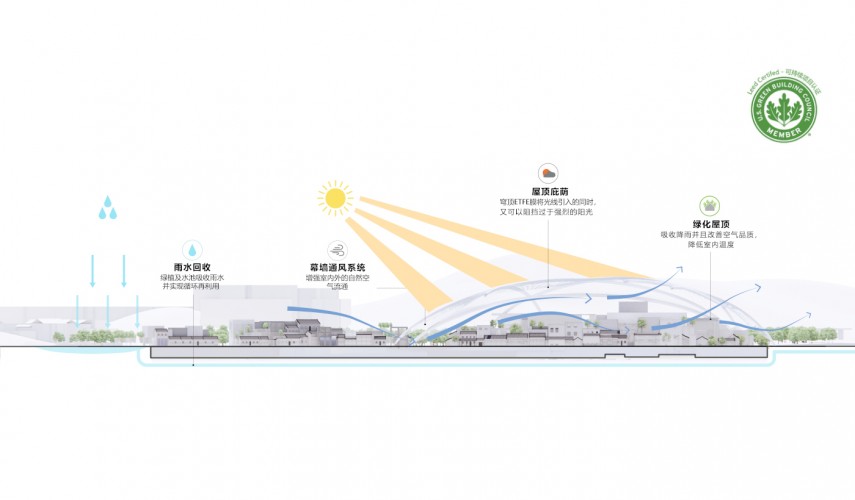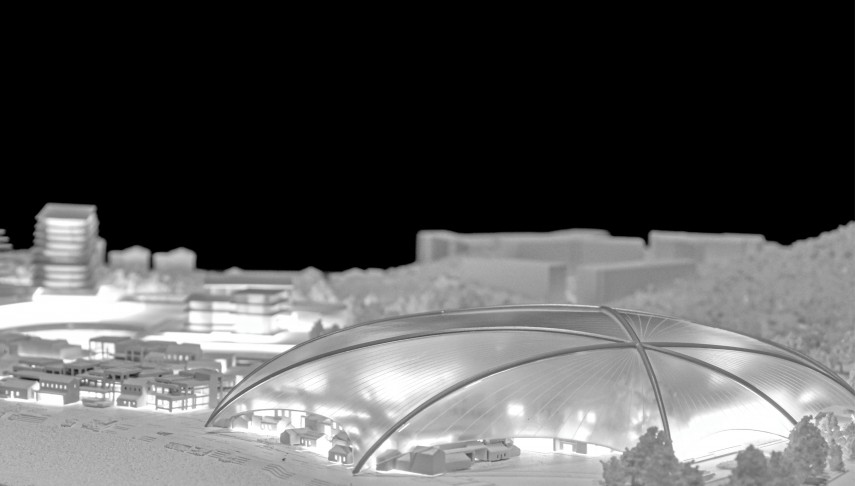Over the past 30 years, cities in China have experienced rapid urbanization and growth. As a result, entirely new cities, districts, and public buildings have emerged, often emphasizing a large scale, and become homogenized. In recent years, old cities and villages have been demolished and new ones built in their place, leading to an inevitable cyclical repetition of major urban change. The phenomenon urges us to reflect and ask ‑ what is the core focus of urban renewal?
With this question in mind, MAD, led by Ma Yansong, participated in an international design competition for the Zhuhai Cultural Arts Center, where they proposed a solution titled “Village Under the Dome”.
Situated within China’s Pearl River Delta, the history of Yinkeng Village dates back to the Northern Song Dynasty; a centuries-old village formed naturally by the sea. In 2018, the Zhuhai municipal government began the demolition and relocation of Yinkeng Village, making way for a planned municipal cultural and art center.
MAD began by conducting historical research and fieldwork of the area. However, when the competition began, the entire village had almost been demolished.
Through the narrow lanes, there remains traces of history in the ruins. These include door plaques dating from the last century, plants in front of houses, and an ancient banyan tree with over 500 years of history at the edge of the village, under which the ‘God of Land’ was once worshipped. These poignant details carry the marks of people's lives in Yinkeng until the moment the village was torn down, embodying a strong sense of emotion and memory.
During this time, some families had still not moved out. One old man said that his family had lived here for generations and would not leave, no matter what.
MAD’s proposal is unique within the competition, being the only design that opposed complete demolition and loss of the village’s memory. Rather, MAD adopted a conservation and renewal approach that transforms the role and function of the original site, but also respects the history of the village, and the emotional aspirations of the people who once lived there.
Rather than overlay a large new building on the ruins, MAD chose to respect and keep the original layout of Yinkeng Village. With meticulous research, bold imagination, and precise updates, MAD’s proposal is one that will restore the public life of local villagers who gathered here for hundreds of years, while also "protecting" it with a large dome.
MAD's design celebrates daily life within the old village and amplifies the community atmosphere of its people. Rather than flaunt the “muscle” or “power” of new urban economic development, the scheme seeks to reflect the true civic and humanistic sentiments that have naturally developed over time. As a result, it is hoped that this civic center will be truly human-oriented, and although low in profile, will be more iconic, contemporary, and pioneering in spirit.
Urban renewal in China, especially in historic districts, should be preserved, revived, and re-created, instead of being completely wiped out and rebuilt over.
--Ma Yansong
The multiple large volumes and complex functional requirements of the cultural arts center are reorganized and arranged to fit the original village streets, topography and layout, and recreated in the form of scattered, small-scale, block-like buildings. This approach intends to create a sense of community based on the existing protective ruins. Based on this setting, MAD envisions a floating dome that gathers small-scale spaces with a sense of stacking.
Throughout the center, visitors approach different functional areas along the original road network of Yinkeng Village, where the elaborate landscape design transforms the streets themselves into a new visiting experience. The overall planning and design are also a combination of old and new, with the village's original plaza, green space, pond, and the iconic ancient banyan tree all preserved. Underneath the tree, the outdoor plaza has been redesigned to echo the reverence for nature that has always been present in the Southern Guangdong region.
In dialogue with the small-scale street layout is a surreal "floating" dome, which unites the entire cultural center as a symbol of preservation and renewal. Reaching a maximum height of 45 meters, the dome is formed of a main arch and cable membrane structure to ensure its stability; protecting the past while imagining the future.
While the dome’s primary structure is rooted to the ground, the membrane remains open towards the base, allowing people to enter from all directions. In addition, the roof is equipped with an openable feature for further flexibility.
The dome is composed of a translucent membrane material, appearing almost as a layer of mist floating above the village, blending with the sky to blur reality with imagination.
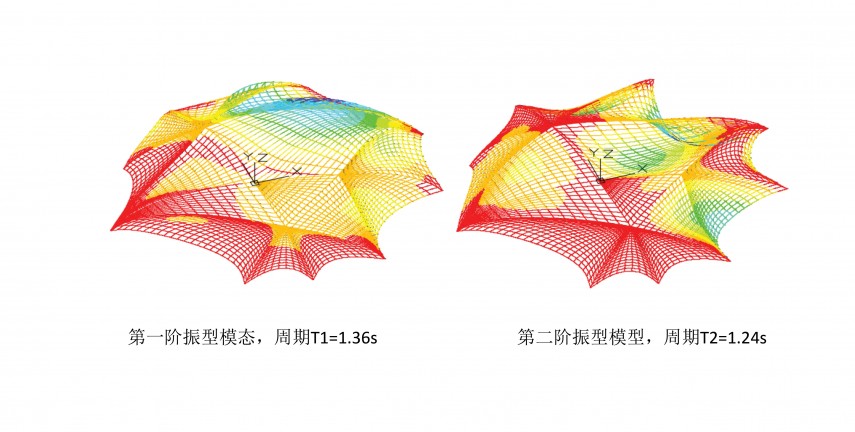
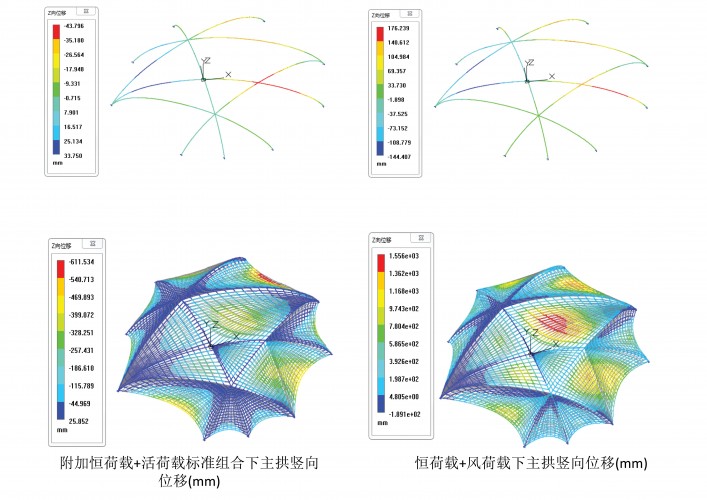 At the same time, the dome embodies a sustainable design approach with energy-saving features. The project takes account of the local climate and ecological environment of Zhuhai, and follows the principle of "generating resources while reducing expenses.” The scheme makes full use of renewable energy, with the proportion of use between efficient systems and equipment in municipal infrastructure reaching 80%.
At the same time, the dome embodies a sustainable design approach with energy-saving features. The project takes account of the local climate and ecological environment of Zhuhai, and follows the principle of "generating resources while reducing expenses.” The scheme makes full use of renewable energy, with the proportion of use between efficient systems and equipment in municipal infrastructure reaching 80%.
Architecture is closely linked to human behavior; it carries emotions and memories. Without "people", there can be no continuation of culture and civilization. Architecture should not convey cultural values that lack human feelings or a respect for history. Massive demolition and construction risks erasing historical traces, replacing it with vast squares, and buildings without roots or soul. We should focus our attention back on history, and the extension of our existing cultures. We must avoid the cultural fault lines, so that people, nature, the past, and the future can coexist in a harmonious world.
Overview
Village under the Dome: Zhuhai Cultural Arts Center Competition Proposal
Location: Zhuhai, China
Time: 2021
Type: Public Building
Planned site area: 296,200 sqm
Building area: 179,030 sqm
Team
Principal Partners: Ma Yansong, Dang Qun, Yosuke Hayano
Design Team: Xiao Ying, Dayie Wu, Punnin Sukkasem, Luo Man, Guo Xuan
Client: Zhuhai High-Tech Construction Investment Co.
Consultant: China Academy of Building Research
